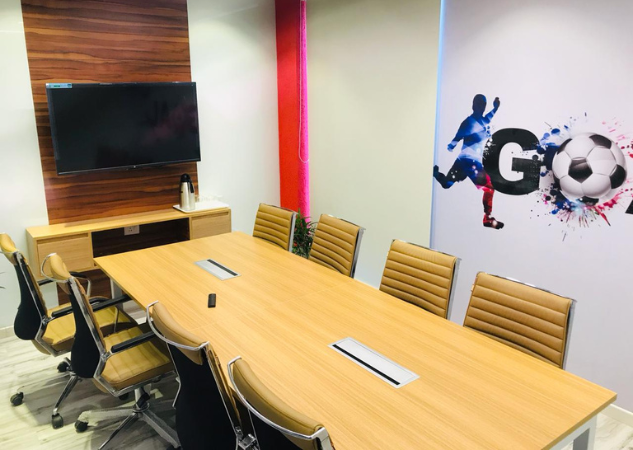Bad habits can drain time and energy. Identify and change them to boost productivity and achieve your goals.
💡 Are you looking for Coworking space in Gurgaon, Noida or Delhi? We are just a call away.
Call Now: 08999 828282
10 Common Habits that are Making You Less Productive
- Procrastination
- Multitasking
- Constant Distractions
- Lack of Organization
- Poor Time Management
- Inadequate Breaks
- Perfectionism
- Excessive Meetings
- Ignoring Self-Care
- Lack of Clear Goals
1. Procrastination
Procrastination is one of the most common productivity killers. Putting off tasks until the last minute can lead to stress, rushed work, and mistakes. To overcome this habit, try breaking large tasks into smaller, manageable pieces and setting deadlines for each. You can also use productivity techniques like the Pomodoro Technique to keep you focused.

2. Multitasking
Many people believe that multitasking is a sign of efficiency, but it often leads to decreased productivity. When you switch between tasks, your brain has to refocus each time, which can lead to errors and reduced efficiency. Instead, try focusing on one task at a time and completing it before moving on to the next.
3. Constant Distractions
Thanks to social media for easily distracting us from work. Whether it’s your phone, social media, or chatty coworkers, distractions can severely impact productivity. Hence, create a distraction-free environment by turning off notifications, setting boundaries with colleagues, and scheduling specific times for checking emails and social media.
Also Read: How to create a positive work environment for employees?
4. Lack of Organization
Disorganization can lead to wasted time and effort. If you can’t find what you need, you spend valuable minutes searching for it. Keep your workspace tidy and create a system for organizing your files, emails, and other resources. Consider using tools like Trello or Asana to keep track of tasks and projects.
5. Poor Time Management
Not managing your time effectively can lead to a lack of productivity. It’s important to set priorities and allocate time for each task based on its importance and urgency. Consider using time management tools like calendars, planners, or apps to keep you on track.
6. Inadequate Breaks
It might seem counterintuitive, but not taking breaks can reduce productivity. Your brain needs time to rest and recharge. Schedule regular breaks throughout the day, and use that time to stretch, walk, or do something that relaxes you. This will help you stay focused and energized when you return to work.
7. Perfectionism
Striving for perfection can lead to overthinking and unnecessary revisions, which can slow you down. Instead, aim for excellence, not perfection. Understand that mistakes are part of the learning process, and it’s better to complete a task and improve it later than to get stuck in a cycle of endless revisions.
8. Excessive Meetings
Meetings are often necessary, but too many can disrupt your workflow and waste your productive time. Before scheduling a meeting, ask yourself if it’s essential and if it can be accomplished through email or a quick call. In case, a meeting is necessary, set an agenda and stick to it to avoid unnecessary delays.
💡 SMBs looking for HR, Marketing, Technology and Funding solutions for their business.
Call Hello Jarvis 994 8000 800
9. Ignoring Self-Care
If you’re not taking care of your physical and mental health, your productivity will suffer. Make sure you’re getting enough sleep, eating healthily, and exercising regularly. Additionally, practice mindfulness or meditation to help reduce stress and improve focus.
10. Lack of Clear Goals
Without clear goals, it’s easy to feel lost and unmotivated. Set specific, achievable goals and create a plan for reaching them. Break down larger goals into smaller steps, and track your progress to stay motivated and on course.
To sum up, by recognizing and addressing these bad habits, you can significantly improve your productivity. Start by focusing on one or two habits and work your way through the list. With consistent effort and a commitment to change, you’ll find yourself getting more done in less time and with less stress. Employees who get to work in offices set up at
The Office Pass (TOP) co-working spaces available in Delhi and NCR are seen as highly productive. TOP offers all the modern-day facilities and relaxation areas to employees, keeping them motivated all throughout the day for enhanced productivity at work. Contact us for more details at 08999 828282.
FREQUENTLY ASKED QUESTIONS (FAQS):
Question: What are the most common bad habits that reduce productivity?
Answer: Some of the most common habits include:
- Procrastination
- Multitasking
- Excessive social media use
- Poor time management
- Lack of prioritization
- Overworking without breaks
- Disorganized workspace
- Ineffective communication
- Lack of focus
- Inadequate planning
Question: How does procrastination affect productivity, and how can I overcome it?
Answer: Procrastination leads to delayed tasks, missed deadlines, and increased stress. You can overcome it by breaking tasks into smaller steps, setting deadlines, using productivity techniques like the Pomodoro Technique, and eliminating distractions.
Question: Does multitasking improve productivity, or does it have the opposite effect?
Answer: Multitasking often reduces productivity by splitting focus and increasing the likelihood of errors. It’s more productive to focus on one task at a time, complete it, and then move on to the next.
Question: What impact does excessive social media use have on productivity?
Answer: Excessive social media use can be a major distraction, leading to loss of focus and decreased productivity. To mitigate this, consider setting time limits, using website blockers, or scheduling specific times for social media use.
Question: How can poor time management contribute to decreased productivity?
Answer: Poor time management can lead to incomplete tasks, missed deadlines, and an overwhelming workload. Employees can improve time management by creating schedules, prioritizing tasks, and using tools like calendars or task management apps.
Question: Why is taking breaks important for productivity, and what happens if I don’t take them?
Answer: Breaks are essential for recharging and maintaining focus. Employees who work without taking breaks are at risk of burnout, decreased motivation, and reduced quality of work. Hence, scheduling regular breaks is essential to stay productive and energized.
Question: How does a disorganized workspace affect productivity, and what can I do about it?
Answer: A cluttered workspace can be distracting and make it harder to find necessary items. Keep your workspace tidy, organize your supplies, and create a system for managing documents and other materials.
Question: How can inadequate planning affect productivity, and what are some tips for better planning?
Answer: Inadequate planning can result in disorganization, confusion, and missed deadlines. Improve planning by setting clear objectives, creating detailed plans, using tools like to-do lists, and regularly reviewing and adjusting your plans.
Question: Can ineffective communication lead to decreased productivity?
Answer: Yes, ineffective communication can cause confusion, errors, and delays. To improve communication, be clear and concise, use appropriate channels, and ensure that all parties understand the message.
Question: What is the impact of a lack of focus on productivity, and how can I improve it?
Answer: Lack of focus leads to longer task completion times and lower quality of work. Improve focus by minimizing distractions, setting clear goals, and using techniques like mindfulness or meditation.



